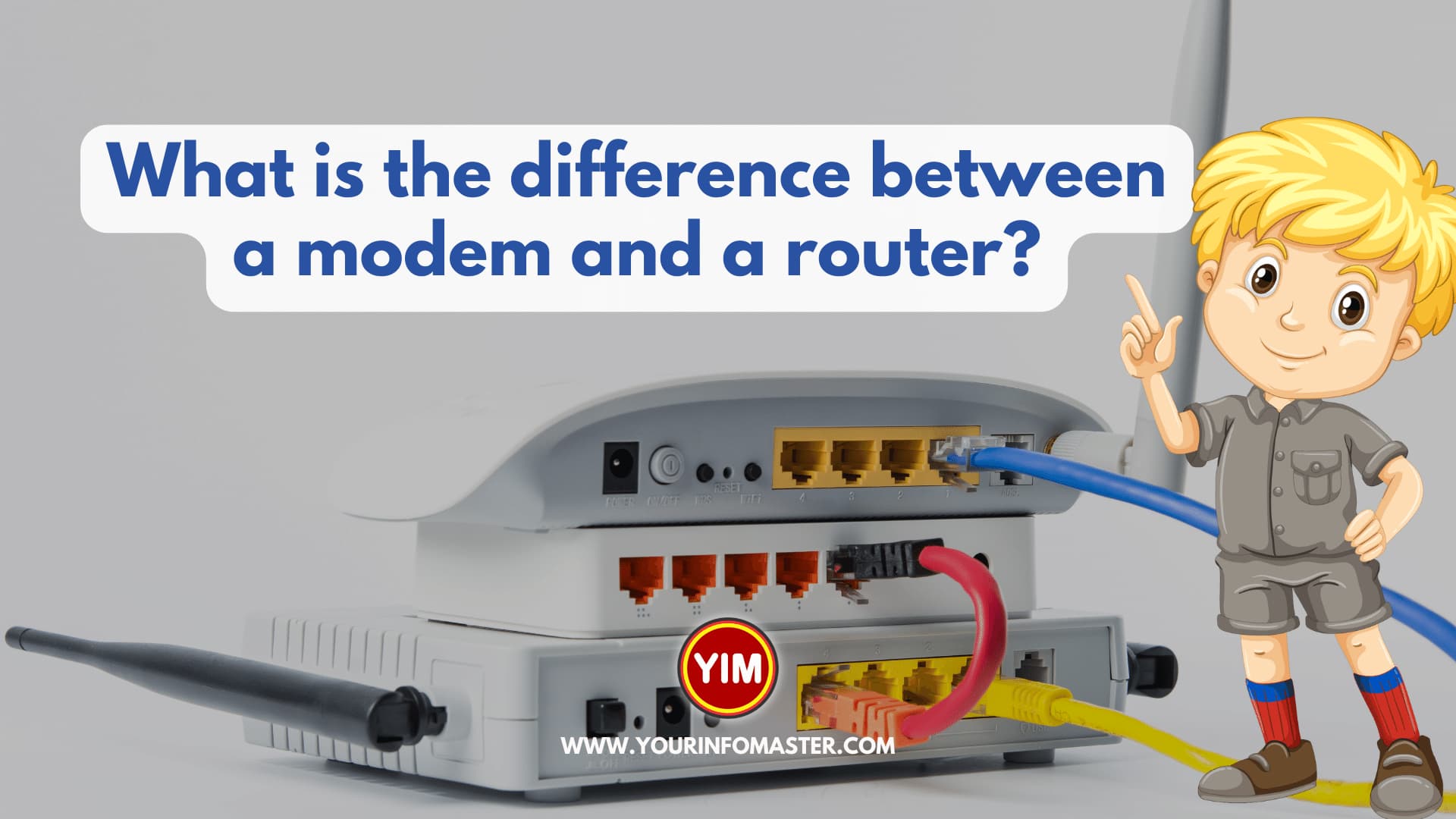I am going to explain the blog post “What is the difference between a modem and a router?“
Are you confused about the difference between a modem and a router? Although these terms are often used interchangeably, they are two distinct devices that serve different functions in a network. Understanding the difference between a modem and a router can help you troubleshoot network issues and choose the right equipment for your needs.
So, what is the difference between a modem and a router? Let’s dive in and explore ten key differences between these two devices.
Check also: Water Intake Calculator
10 Differences between a modem and a router
Here is a list of 10 differences between a modem and a router:
- Function: A modem is a device that connects your computer or network to the internet through your internet service provider (ISP). On the other hand, a router is a networking device that connects multiple devices on a network, allowing them to communicate with each other and access the internet.
- Connection: A modem connects to the internet using a broadband connection, such as DSL, cable, or fiber optic. A router, on the other hand, connects to the modem and allows multiple devices to connect to the internet through a single modem.
- IP Addresses: A modem typically has only one IP address assigned to it by the ISP, while a router has two IP addresses – one assigned by the ISP and one assigned to the router itself.
- Hardware: A modem is a standalone device that connects directly to a wall outlet or cable jack, while a router is a device that can be standalone or built into another device like a modem, switch or access point.
- Security: A modem does not have any security features, while a router has built-in security features such as a firewall, to protect the devices on the network from unauthorized access.
- Network Management: A modem does not have any network management capabilities, while a router allows you to manage your network by setting up access control, QoS and other advanced features.
- Wireless Capability: A modem typically does not have wireless capabilities, while a router can be used to create a wireless network allowing wireless devices to connect to the internet.
- Network Address Translation (NAT): A router uses Network Address Translation (NAT) to share a single public IP address among multiple devices on the network, while a modem does not perform this function.
- Compatibility: A modem may be specific to the type of internet connection you have, such as DSL or cable, while a router can work with any type of internet connection.
- Cost: Modems are generally less expensive than routers, as they have fewer features and are designed for a single purpose, while routers can be more expensive depending on the features they offer.
Conclusion
In conclusion, the differences between a modem and a router are significant. While a modem connects your network to the internet, a router directs traffic between devices on your local network. Understanding the roles of these devices can help you diagnose network problems and choose the right equipment for your needs. So, if you want a reliable and secure network, make sure you have both a modem and a router, and you understand the differences between the two.
If you really enjoyed the article “What is the difference between a modem and a router?,” then I would be very grateful if you’d help it spread by emailing it to your friends or sharing it on Twitter, Instagram, or Facebook. Thank you!
Have you read “What is the difference between a modem and a router?“ Which of these blogs are you reading, and how is it similar to one of them?






